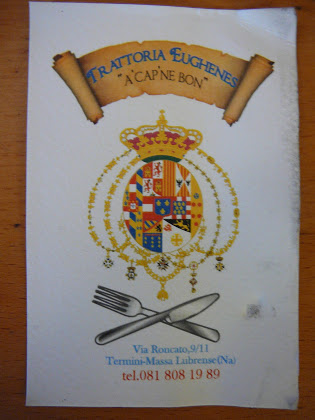Clemente Polo has blogged a short book containing what feel like author-translated essays by him and four other anti-secessionists, José Luis Feito, Ángel de la Fuente, Guillem López Casanovas and Joan Roselló Villalonga. Here is Polo on “The economic consequences of the Succession War (1702-1714)”:
Economic historians underlie the importance of both Castilian and American markets in the rapid economic growth of Catalonia during the 18th century. In his panoramic, “Catalonia, the first industrial region of Spain”, Carreras (1990) describe in the following terms the consequences of the Succession War for Catalonia:
“Let us focus the attention in the free access to the Spanish market. One of the consequences of the Succession War was the suppression of interior customs between Aragon and Castile (and inside the Aragon Crown). Although not all of them were abolished, the majority of them were eliminated and trade among the two Kingdoms was greatly facilitated after the abolition of customs. The measure was adopted with the purpose of equalizing the conditions of Castile and Aragon, eliminating old privileges and promoting commerce”. 12
As far as the distribution of the benefits accruing from the reforms undertaken by Phillipe V, Carreras has few doubts about who were those that reaped most benefits: “Thanks to the access to Aragon, Castile expanded its market by 25 percent (I assume similar per capita incomes). In exchange, Aragon gained access to a market four times larger”. The expansion was even larger for Catalonia that multiplied its market by a number between 9 and 10.13 Although communications were still rather primitive, the expansion of the market did not last to be noticed and “Catalan merchants were penetrating in the Castilian market protected by common customs offering Catalan cloths at prices more competitive than local artisans”, to the point that “the conquest of the Spanish market was already under way –although not completed yet- in the decade of 1770”. In sum, the reforms of Phillipe V and the customs that protected the ‘national’ market open unthinkable opportunities to Catalan merchants that took full advantage of being foreigners (by their language and uses) while being ‘nationals’ from a legal point of view. Their solidarity, endogamy, and mutual familiarity help them to penetrate into a hostile territory where they nevertheless had full right to trade”.14
And so on and so forth. It’s usually possible to figure out what Polo and his colleagues want to say, and it’s usually worth the effort, but the unionist movement could do with studying Ms Fitzgerald:
Well, that’s quite enough of all that. Let me tell you that the major threat to Catalan independence may not actually be from enemies within or without, but from long-lost nationalist cousins in the Kingdom of Naples who yearn for reïntegration in the Crown of Aragon:
Mr. E. is a most amusing fellow, and brings gifts from an excellent kitchen. But given that the peoples of Naples and Mogadishu differ principally in that the Somalis have better guns and better Latin, one must hope for the sake of Barcelona and Catalonia that both Italy and Spain will retain their current borders.
Similar posts
Back soon

Comments